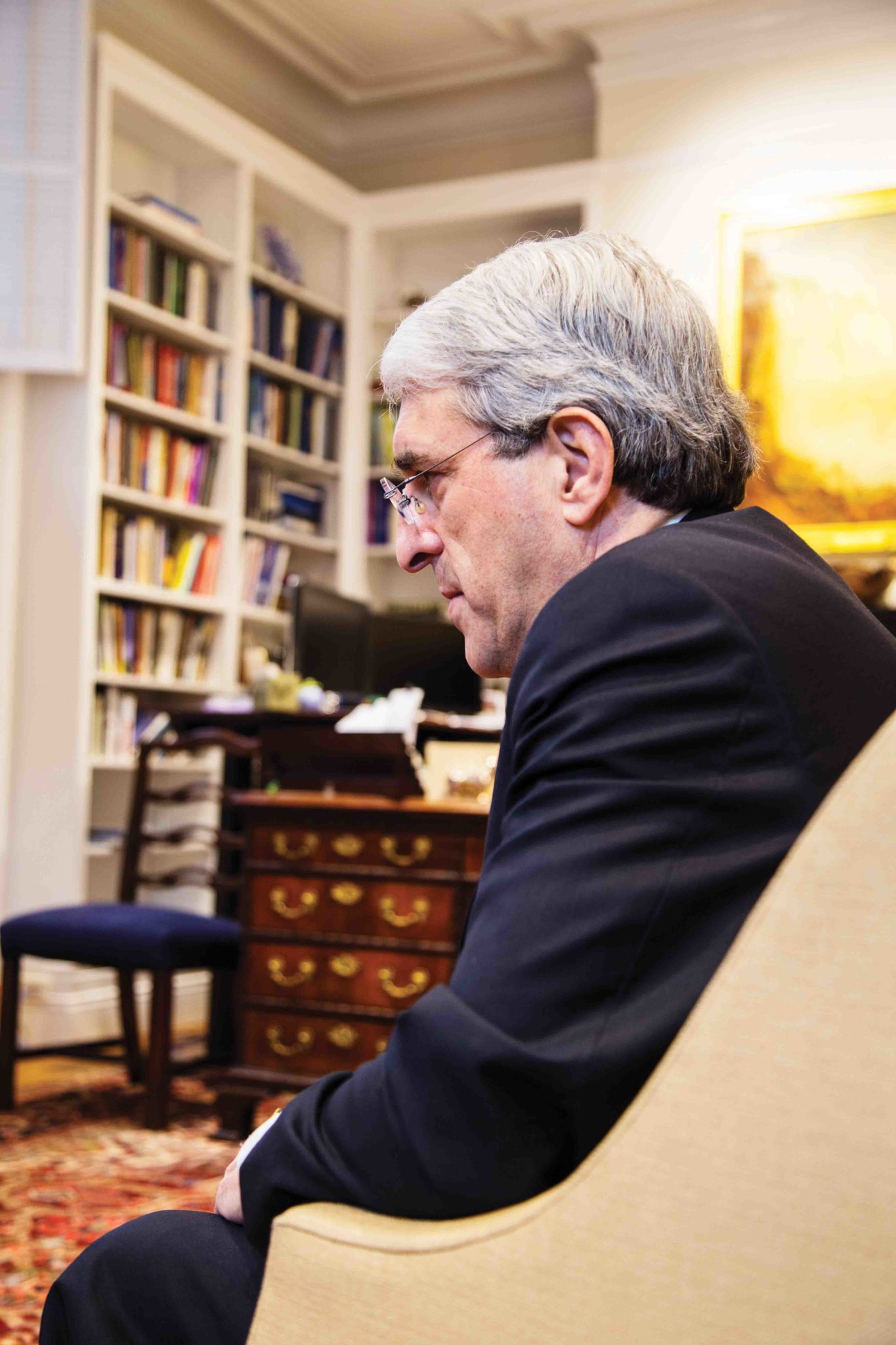
In a letter to University President Peter Salovey earlier this month, over 1,000 members of the Yale community, including the Dean of the School of Public Health Sten Vermund and the Dean of the School of Forestry and Environmental Studies Indy Burke, urged Salovey to join the We Are Still In coalition. By joining the coalition, signatories affirm their commitment to fulfilling the Paris Agreement by reducing emissions.
The letter requests that the University “redouble its efforts to engage with the serious problem of climate change” in light of President Donald Trump’s decision to withdraw the United States from the Paris Agreement in June 2017. Over 20 student groups and more than 1,330 students, alumni and faculty members signed the letter.
“Research by Yale’s own scholars has shown the severity of climate-induced threats to human health, welfare and the environment, as well as the difficulty of responding to climate change,” the letter stated. “We believe that by committing to the Paris Agreement as part of this coalition statement, Yale would — as one of the highest-profile universities in the United States — bring greater attention to how universities are mobilizing in response to … Trump’s withdrawal decision.”
Following Trump’s withdrawal from the agreement, Salovey and 11 other elite university presidents formed a coalition in 2017 pledging to do their part in meeting the United States’ obligations under the Paris climate accord. This month’s letter acknowledged Yale’s existing efforts that address climate change but stated that Yale “can and should do more” to increase awareness of the issue. According to Franz Hochstrasser FES ’19, who helped draft the letter, Salovey has yet to respond to the request to join the coalition.
Salovey did not respond to a request for comment.
According to Hochstrasser, students at the Law School and the F&ES began gathering signatures for the letter in June 2017. While the group originally submitted the petition with just individual signatories to Salovey in 2017, students revised the petition and collected more signatures this fall, Hochstrasser explained. Yale Graduate and Professional School Student Senate, Yale College Council Senate and F&ES Student Affairs Committee are among the student groups that signed the letter.
President of the Graduate and Professional Students Senate Justin White GRD ’20 said that the letter “is not necessarily meant to be a reflection” on the University’s existing anti-climate change efforts but rather “is meant to urge … Salovey to make a public commitment to the international community.”
Noting that there are more than 300 colleges and universities that have already joined the We Are Still In coalition, Vermund emphasized that recent reports on climate change “underscore the urgency of Yale leadership on this issue.”
“I think it is an opportune time for Yale to assert itself as a leading university in addressing climate change on all fronts — research, education, service, institutional change and investment policy,” Vermund said.
Dean of the F&ES Indy Burke, one of the petition’s signatories, declined to comment for the story.
Although Yale formed a separate group with other elite universities in 2017, Yale did not join a broader coalition mobilized by former New York City Mayor Michael Bloomberg and the environmental nonprofit Second Nature. Unlike Salovey’s announcement, the Bloomberg pledge directly criticized Trump, noting the “absence of leadership” in Washington. At the time, former Vice President for Communications Eileen O’Connor said the University “didn’t find political language necessary.”
Like the Bloomberg pledge, the We Are Still In coalition also directly condemns the Trump administration’s climate change policies.
“The Trump administration’s announcement undermines a key pillar in the fight against climate change and damages the world’s ability to avoid the most dangerous and costly effects of climate change,” reads the statement from the coalition. “Importantly, it is also out of step with what is happening in the United States.”
Hochstrasser argued that Salovey’s 2017 statement “never compelled action [nor] garnered any significant recognition or traction.” He added that because many other universities are part of the We Are Still In coalition, joining the group will allow Yale to “be even more of a leader.” Among the 12 universities in the 2017 coalition, only Columbia University, Duke University and the Massachusetts Institute of Technology have joined the We Are Still In group.
According to President of Chatham University David Finegold, who is a member of the Leaders’ Circle of the We Are Still coalition, joining the group is a way of demonstrating that higher education institutions are committed to reducing greenhouse gas emissions and of addressing other problems caused by climate change — regardless of the U.S. government’s position on the matter.
In an email to the News, Salovey’s Chief of Staff Joy McGrath outlined initiatives the University has already employed to combat climate change. In 2005, Yale was one of the first universities to commit to reducing campus greenhouse gas emissions. To date, Yale has decreased emissions by 23 percent, despite a 30 percent increase in campus population and a 18.5 percent increase in campus square footage, McGrath said.
“The University has developed a robust set of tactics including updating buildings for energy conservation and efficiency, establishing and adhering to sustainable construction and renovation standards for buildings, increasing efficiency in Yale’s on-campus power plants and promoting behavioral shifts by building occupants,” McGrath stated.
McGrath added that Yale faculty members are working to develop a cross-university task force to identify and solve global challenges, including climate change.
Yale College Council President Saloni Rao ’20 said that Yale has taken many steps to address climate change, including implementing bike-sharing programs and competitive carbon pricing for University buildings. Adding that there is always more to be done, Rao said that students’ grassroots efforts are the most effective way to make further progress.
The Paris Agreement was signed on April 22, 2016.
Serena Cho | serena.cho@yale.edu







